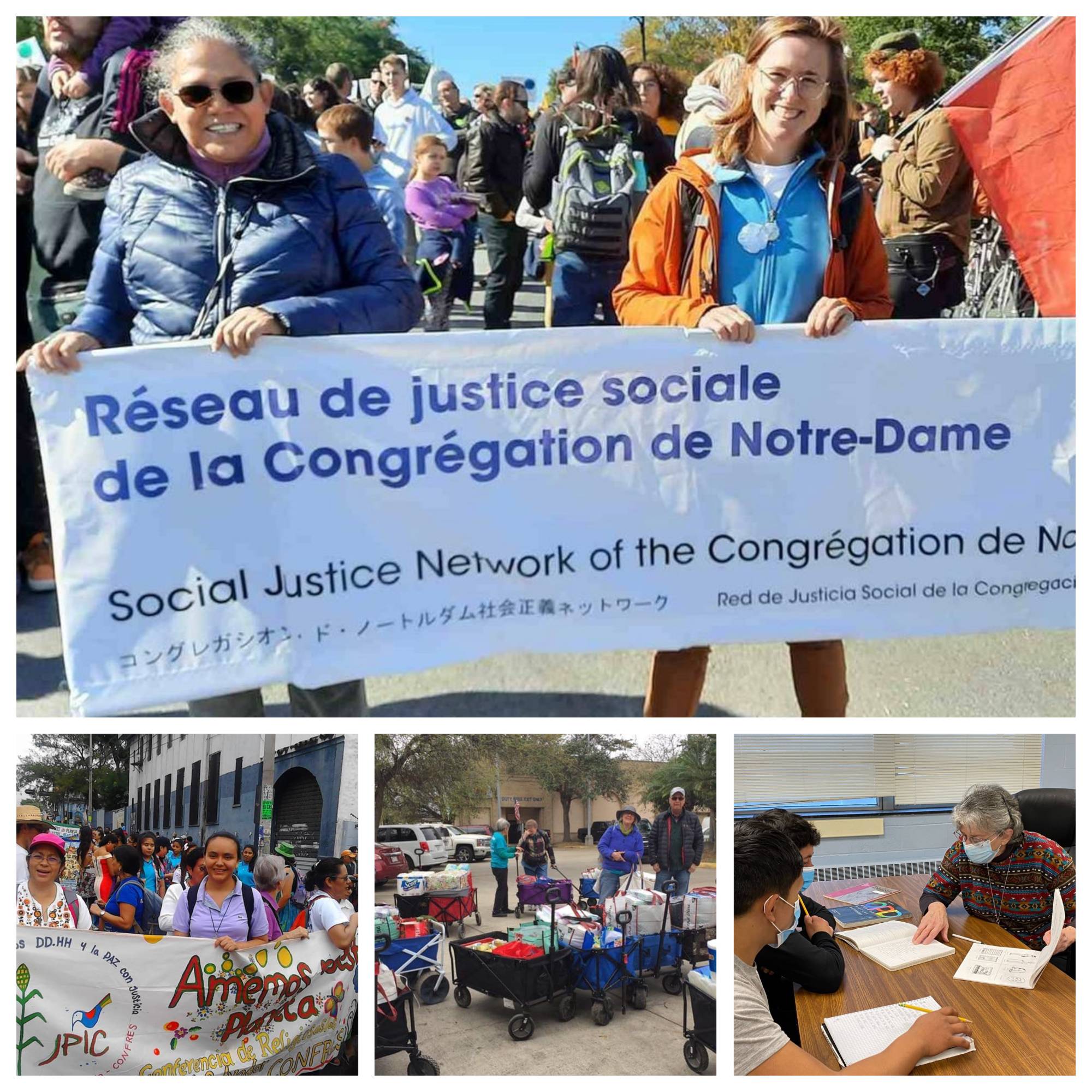The Congrégation de Notre-Dame Takes Action for Social Justice
Social justice has always been at the heart of the Congrégation de Notre-Dame’s mission since its founding by Marguerite Bourgeoys in the 17th century. The “great precept of the love of God above all things and of the neighbor as oneself” (Writings of Marguerite Bourgeoys) continues to underscore the actions of the sisters and associates of the Congregation.
In the spirit of collaboration and solidarity, social justice activities are inspired by the mission orientations of the Congregation, urgent issues in society and Pope Francis’s calls to action in his encyclical letter Laudato Si’. These activities take a variety of forms, on a local or more general scale. Their goal is to participate in the transformation of society for a more just and humane world.
The initiatives are encouraged and supported by the Social Justice Action Network, made up of coordinators and committees across the Congregation’s administrative regions. Through awareness campaigns, information, formation and concrete action, the Network seeks to renew and reinforce the commitment of the sisters and associates of the Congregation to support vulnerable populations and act for the respect of the planet. The Network’s coordinators gather annually to determine the priorities for the following year.
For example, sisters in Canada have taken the necessary steps to obtain Blue Community designation based on their water conservation efforts and participation in ecological programs and campaigns. Other sisters and associates accompany newcomers and support refugee women. Some have followed a voluntary 12-week training course developed by the University of Alberta that teaches about reconciliation with Indigenous peoples. Several trained groups also meet with an Elder on a monthly basis.
In the U.S., sisters and associates recently went to lend a hand to organizations that help migrants at the U.S.-Mexico border. Also, with the help of volunteers, a welcome group was created in West Haven, Connecticut, to support Hispanic immigrants and help them integrate into society. The sisters support a number of other organizations in the country, notably U.S. Catholic Sisters Against Human Trafficking.
In Japan, sisters still work in schools founded by the Congregation. They ensure that their students are aware of ecological and social issues, human rights and the situation of foreign workers in the country. Volunteer sisters and high school students have also set up a crisis line. The sisters also collaborate with the Japanese Catholic Council to promote justice and peace, and support foreign workers.
In Central America, sisters particularly take part in the fight to protect access to clean water sources. They also work alongside the Jesuit Network with Migrants in Guatemala, and take action to fight against human trafficking in the context of migration. The sisters also accompany women and young people through home visits.
In Cameroon, the Congregation launched a number of tree planting initiatives. Furthermore, started in 2003, the mission of the OK Clean Water Project is to make drinking water accessible by connecting existing distribution systems or creating new ones. The Project also trains local people in how to maintain and ensure the longevity of these infrastructures. The Congregation also contributes to the Justice and Peace Commission of the Diocese of Maroua-Mokolo in the Far North Region of Cameroon, and therefore, to the efforts to end violence toward women and the resolution of confessional conflicts in this region. Meanwhile, the Marguerite Bourgeoys Centre fights for women empowerment and against trafficking and exploitation. The Centre offers short training courses in sewing and hairdressing as well as spiritual accompaniment.
A sister of the Congrégation de Notre-Dame also serves on the board of UNANIMA International, a non-governmental organization (NGO) founded in New York City by a coalition of congregations of women religious with Special Consultative Status with the United Nations Economic and Social Council. Through its work with various working groups and forums, UNANIMA International seeks to promote the interests of women, children and girls as well as those of immigrants and refugees. UNANIMA International also fights to protect the planet.
